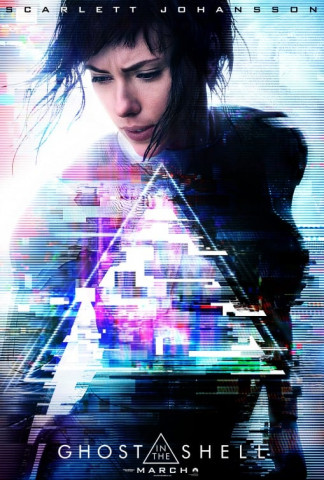Why Hollywood can’t get enough of cyberpunk films
Scarlett Johansson’s ‘Ghost in a Shell’ is part of a subgenre which stretches back to the 1920s

PHOTO:FILE
It’s not surprising that cyberpunk has been loved by film-makers since the term was coined by author Bruce Bethke in the early 1980s. Visions of postapocalyptic futures, advanced technologies and virtual realms allow them to put in visual effects while wrestling with weighty existential themes.
Yet, according to The Guardian, cyberpunk has often proved a tough nut to crack on the big screen. Even the author William Gibson, a founding father of the genre in book form, struggled with it. His first foray into film came in 1995 with Johnny Mnemonic – an adaptation of his short story about a data courier with a chip implanted in his head. The film, however, didn’t fare too well.
Johnny Mnemonic identified a problem that would plague many cyberpunk films thereafter. A decade before it was released, William had written Neuromancer, a genre-defining novel that thrust readers into a noirish dystopia. Published in 1984, it came at a time when computers were uncommon and a strange subculture of hackers was brewing. Slowly, governments were realising that these computer geeks could disrupt the status quo. In short, great material for screenplays.
Meet the droid who serves piping hot pizzas in Multan
However, the resulting films have varied in quality. The biggest cyberpunk hit has been the Matrix trilogy. Then there was New Rose Hotel which starred Christopher Walken and Willem Dafoe, Wim Wenders’ Until the End of the World and Kathryn Bigelow’s Strange Days. More recently, we’ve had The Nest. Cyberpunk has been on TV too: Orphan Black.
A turning point came from in 1988, with Katsuhiro Ôtomo’s Akira. The story of teenage biker gangs in a postapocalyptic Tokyo became an international cult hit and the film paved the way for a wave of animations for adults that peaked in 1998 with Ghost in the Shell.
Common in cyberpunk is a take on social issues. As Iain Softley, the director of the 1995 thriller Hackers said, “As far as a cyber-culture is concerned, it is this mixture of technological culture with underground movements. That appeals to younger audiences and that is also the appeal for film-makers. It was never about the technology but the popular culture that it generated.”
But how to ensure that the genre remains cutting edge? The remake of Ghost in the Shell is the first big-budget cyberpunk outing since the Matrix films. Guillaume Rocheron, the film’s visual effects supervisor, said that the makers “took a lot of inspiration from glitch art, various art installations inspired the architecture.”
Guillaume added that the film’s “solograms” (Solid volumetric projections of people and advertisements you see in our city shots) required a new camera system. Pioneering visual effects technologies to create new worlds – such as the “bullet-time” technique that was developed for The Matrix – is also common to cyberpunk films.
McDonald’s makes fast food faster with new phone app
In today’s increasingly technological world, where work depends on connectivity, leisure on social network and the economy on digital information, cyberpunk remains more pertinent than ever. News headlines are dominated by hacking stories, the growing clout of mega-corporations, artificial intelligence and virtual reality. Cyberpunk continues to push the envelope, opening our eyes to the intersection of technology and humanity and the blurring lines between artificial and organic intelligence. What makes something real and who exactly is in control of it has been left to our discretion.
Have something to add to the story? Share it in the comments below.



















COMMENTS
Comments are moderated and generally will be posted if they are on-topic and not abusive.
For more information, please see our Comments FAQ